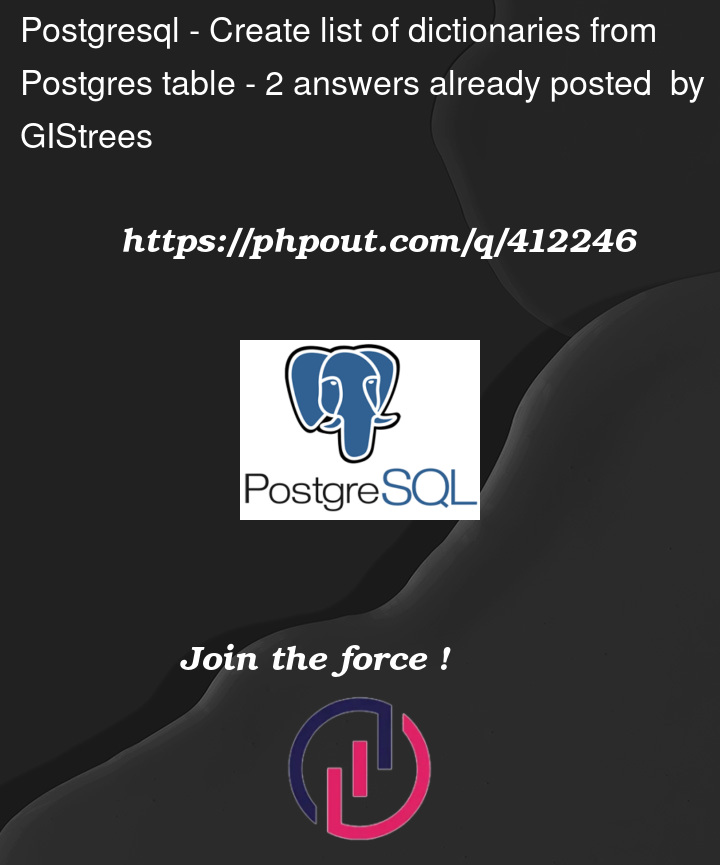I want to create a list of dictionaries from a postgres table. I use this code:
rows_dict = cur.fetchall() # fetch all rows from the Postgres Database
columns = []
entities_list = []
for column in cur.description:
columns.append(column[0].lower())
entities = {}
for row in rows_dict:
for i in range(len(row)):
entities[columns[i]] = row[i]
if isinstance(row[i], str):
entities[columns[i]] = row[i].strip()
print('Output-A:', entities)
entities_list.append(entities) # add dictionary to the entity_list
print('Output-B:', entities_list) # Here I get a list with x-times the same dictionary... Why?
Output-A is what I expect at this indent level (and which is correct): multiple dictionaries. With an .append(entities) I want to add these dictionaries to the entity_list. However, the entity_list is populated multiple times with the same (=last!) dictionary in the loop. I do not understand what is going wrong as the .append(entities) is at the same indent as the Output-A. Any idea what is going wrong there?




2
Answers
The
entitiesdictionary gets reset to an empty one every time we go through a new row in the outer loop. This way, a fresh dictionary is made for each row.So In you code
entities = {}is inside the loop, so a fresh dictionary is created for each row and appended to the list.You’re declaring
entitiesoutside the loop, so you end up updating the same object over and over again.However, all of your code simplifies to a couple of list comprehensions: